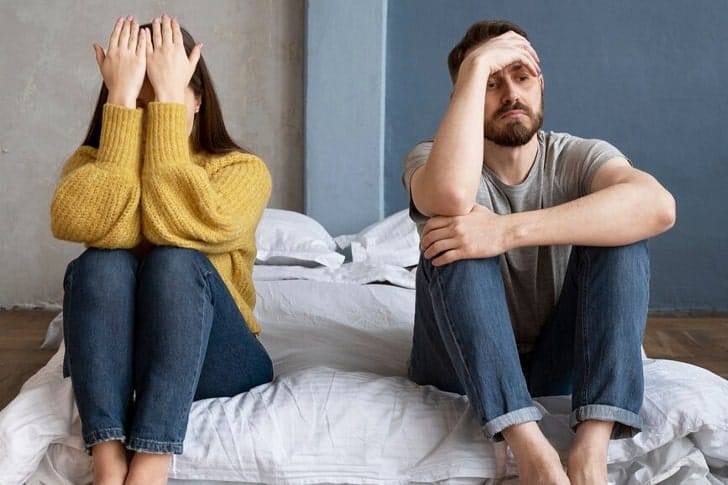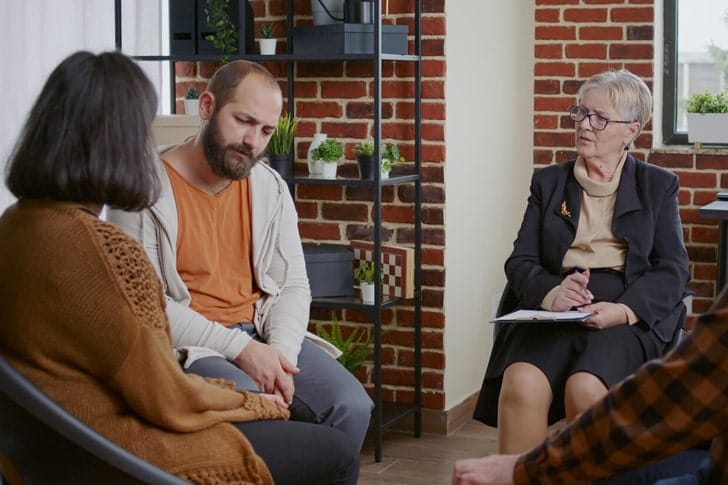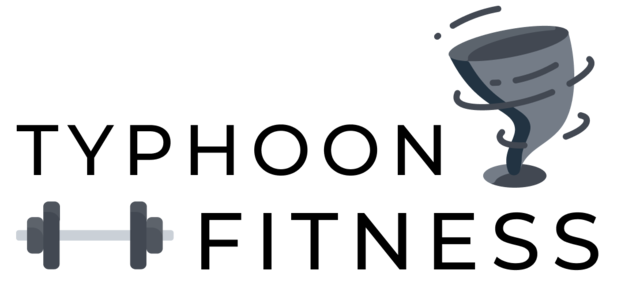Everyone and their uncle knows a man who enjoys karate, football, and rodeos. He also has a soft spot for movie nights and sipping cabernet by candlelight. This man is tough yet sensitive and attributes his unique characteristics to genetics and socialization.
Yet, that tough but sensitive man may be plagued by an indecisiveness that paralyzes him in situations as trivial as choosing lunch. Like many men, he may ignore his symptoms, convincing himself that issues like chest pain or blood in his urine are minor until it is too late.
Men are conditioned to appear strong and self-reliant, both traits that often lead them to deny their struggles with anxiety. Unfortunately, ignoring anxiety doesn't make it disappear; it only aggravates the problem.
How Anxiety Manifests Differently in Men and Women

freepik / freepik
Chronic anxiety manifests differently in men and women. Men often display more physical symptoms. Lindsay Israel, M.D. confirms this by stating how men frequently find themselves in emergency rooms, convinced they're having a heart attack when it's anxiety.
While anxiety doesn't discriminate, women are twice as likely to develop anxiety disorders and seek help. Men, on the other hand, often delay treatment until they develop severe symptoms and even depressive disorders.
Men are also more prone to express anxiety through aggression and being emotionally closed off in their relationships. Many turn to unhealthy outlets like drugs, alcohol, or gambling to cope. However, this sort of self-medication is a flawed approach.
The Most Important First Step

DC Studio / freepik
Men exist in a society that expects them to be natural fixers, even going as far as tackling problems that aren't even there. While acute anxiety—like the kind that pushes one to file taxes or escape a K-pop mob—can be healthy, chronic anxiety is a different beast that wreaks havoc on a person's physical and mental well-being.
As Lindsay Israel, M.D., suggests, a more helpful first step would be to talk to others about such struggles. Sharing experiences can reveal just how common anxiety is, making it easier to accept and manage. Bruce Thiessen, Ph.D., echoes this, emphasizing that while society might judge men for showing vulnerability, mental health professionals most certainly won't.
When men open up about their anxiety, they often discover that others share the same challenges. This shared experience can be a decisive first step toward managing anxiety. After all, everyone finds perspective and relief in knowing they're not alone.
A Practical Guide to Managing Male Anxiety

freepik / freepik
Male anxiety, also known as "manxiety" is contagious when it's constantly around. Start by talking to a healthcare provider who can suggest treatments.
Options range from group therapy for men, which can be a game-changer, to smartphone apps that offer discreet, accessible ways to manage anxiety on the go. Physical exercise is another powerful tool to help regulate mood and reduce stress hormones. The best results often come from combining various approaches—therapy, exercise, and healthy habits.
Remember, you're not alone in this journey. A holistic approach to anxiety management can pave the way for a more fulfilling and balanced life.

